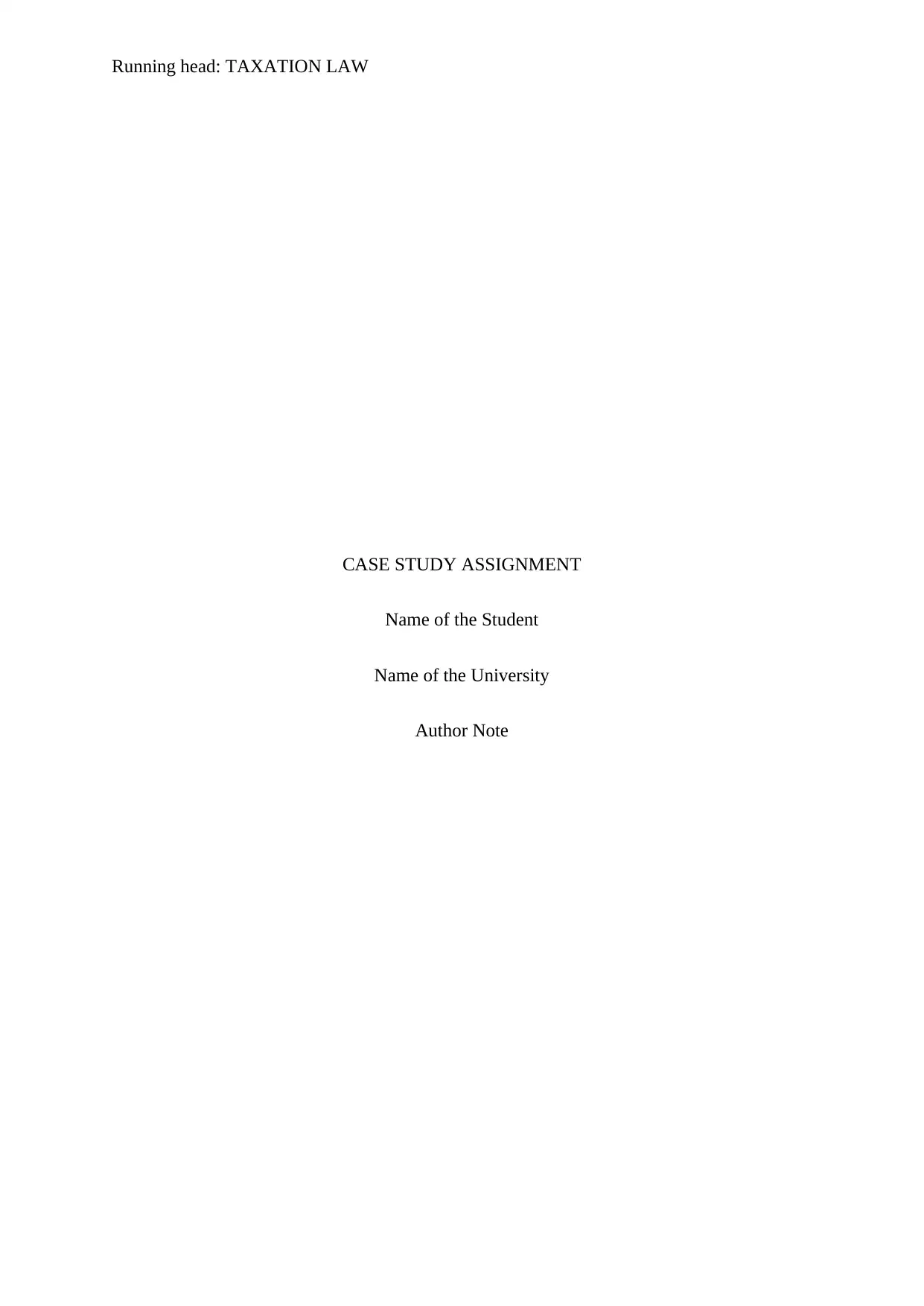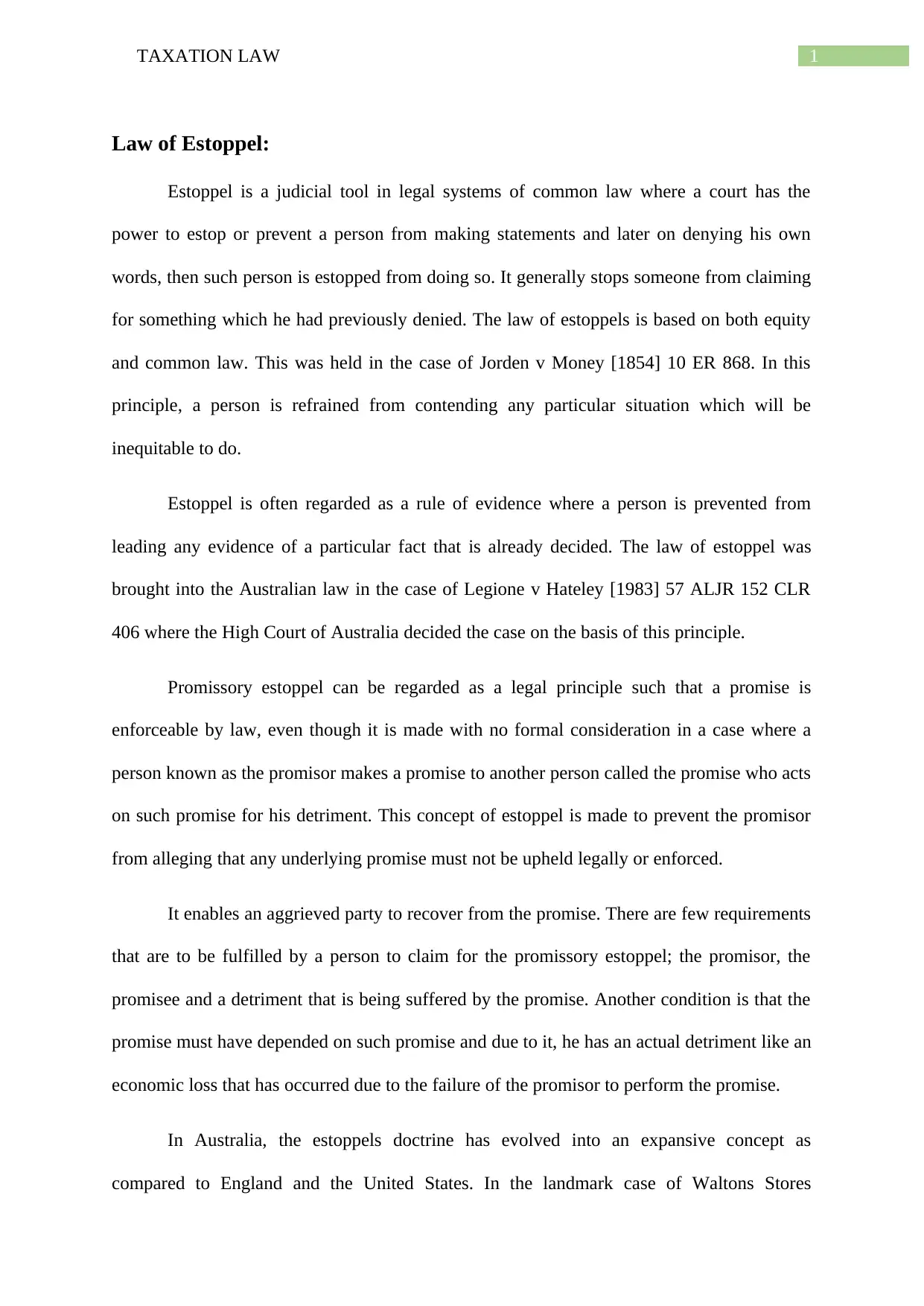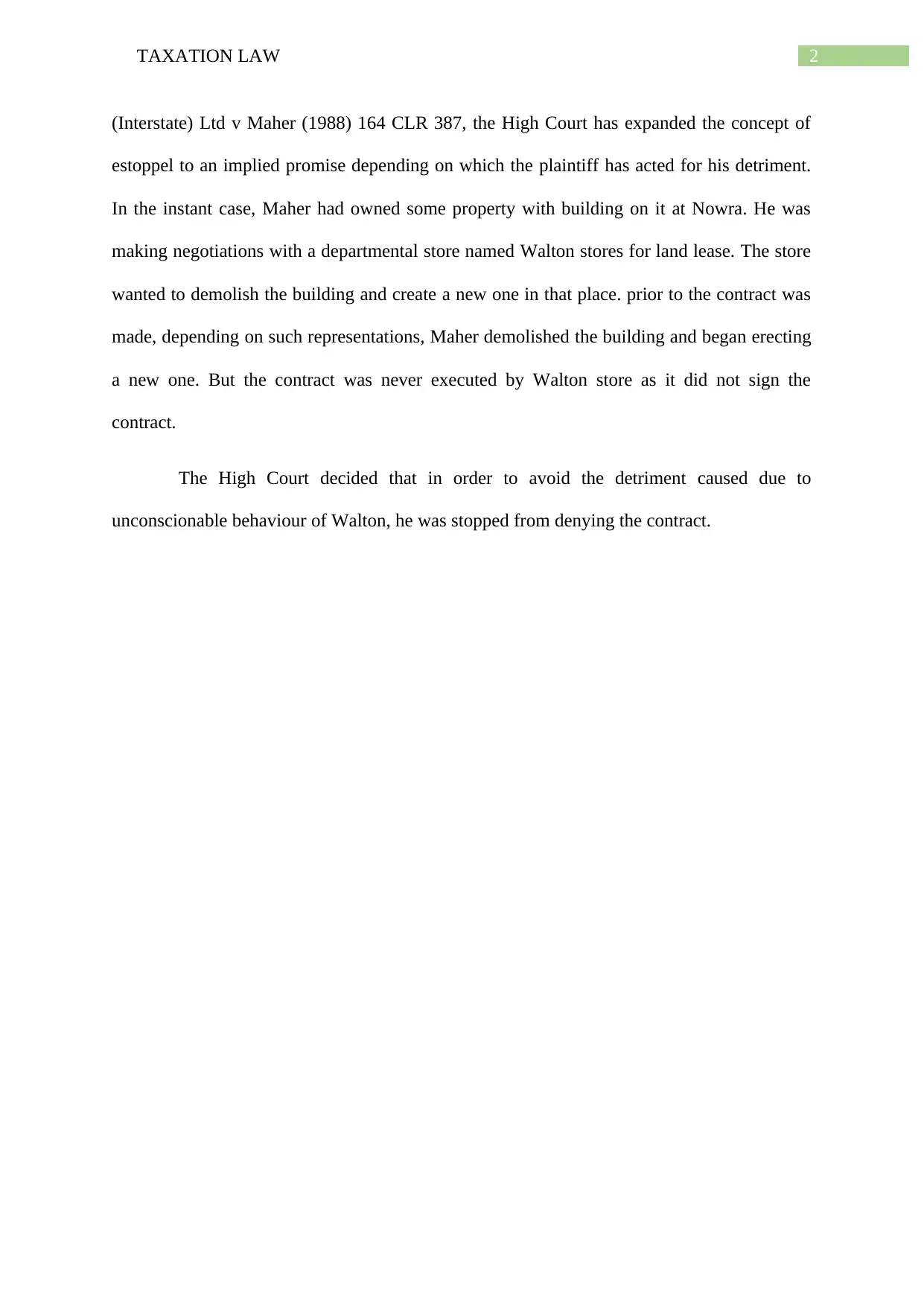Taxation Law Case Study: Examining Promissory Estoppel in Australia
VerifiedAdded on 2023/04/03
|4
|537
|494
Case Study
AI Summary
This case study delves into the principle of estoppel within the context of Australian taxation law, with particular emphasis on promissory estoppel. It elucidates the legal concept of estoppel, explaining how it prevents individuals from contradicting prior statements or actions, drawing from landmark cases like Jorden v Money and Legione v Hateley. The study further explores the evolution of promissory estoppel in Australia, highlighting the pivotal case of Waltons Stores (Interstate) Ltd v Maher, where the High Court expanded the doctrine to include implied promises. The analysis underscores the requirements for claiming promissory estoppel, including the presence of a promisor, a promisee, and a detriment suffered by the promisee due to reliance on the promise. This document is available on Desklib, a platform offering a wide array of study tools and solved assignments for students.
1 out of 4











![[object Object]](/_next/static/media/star-bottom.7253800d.svg)